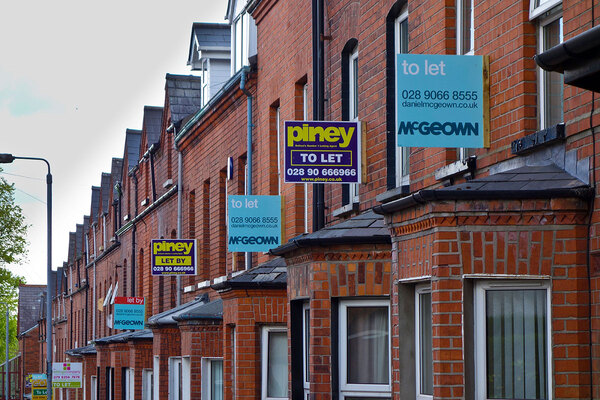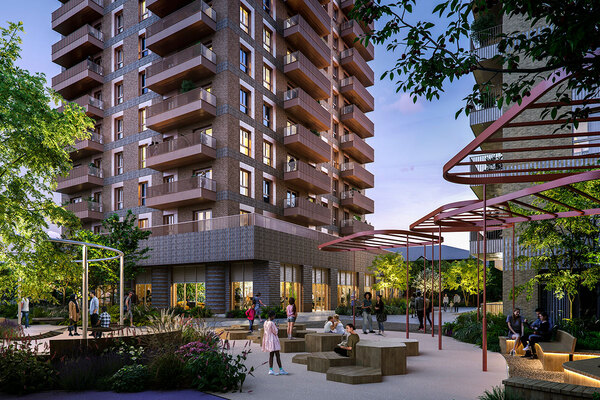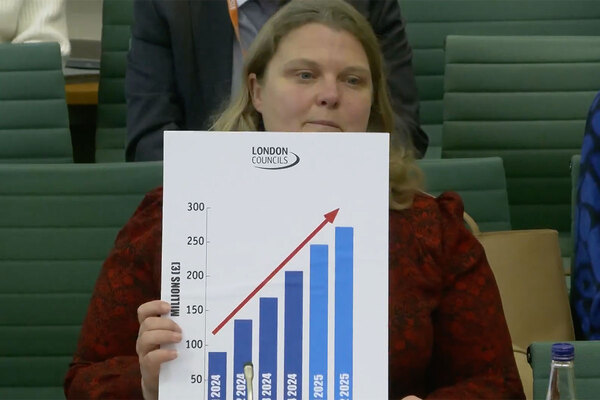Can ‘change’ be more than just a slogan for Labour?
Labour’s huge election victory is undoubtedly good news for housing, but will the party take this once in a generation chance to really make a difference, asks Inside Housing columnist Jules Birch
You’ll have to have worked in housing for more than 25 years to remember the last time Labour successfully regained power in 1997. Then, as now, the party took over after a long period in which Conservative governments got to set the parameters of the housing system on everything from tax to investment and planning to benefits.
The Blair and Brown governments made solid progress on homelessness and decent homes and eventually boosted investment in new homes, but they blew the chance to change things more fundamentally.
Sir Keir Starmer takes over at a time when housing is significantly higher up the political agenda, but the economic backdrop is far bleaker. So how should we react to Labour’s stunning victory?
First and foremost, it’s a time for optimism. After 14 years of Conservative-led governments, we have a Labour government committed to a reforming agenda with a majority large enough to follow through on it. We also have new ministers keen to work with the sector who get housing and seem set to stay in place long enough to make a difference. We have the deputy prime minister in charge to give her department more sway within government.
We can expect a flurry of housing announcements over the next few weeks: the reversal of the Tory surrender on planning; the restoration of housebuilding targets, reform of Section 106 and recruitment of extra planners; a King’s Speech to look forward to for renters and perhaps leaseholders on 17 July; and the start of work on new towns, the green belt and homelessness.
Despite a cautious campaign and manifesto, housebuilding is one area in which Labour will have a strong mandate. Perhaps we will even see radical reform of the land market as well as planning.
Against a grim outlook on public spending, there is at least scope to review current departmental capital spending programmes and redirect it into housing. This year’s UK Housing Review explained how this might work to boost investment.
As Rachael Williamson, head of policy and external affairs at the Chartered Institute of Housing (CIH), sets out in a blog for Red Brick, there are immediate practical steps that the government could take that could make a real difference.
And, as CIH policy advisor John Perry argues in Inside Housing, there is scope to rewrite the rules on what counts as public borrowing and deliver more affordable homes.
Perhaps, in stark contrast to recent administrations, this could be one that under promises and over delivers, rather than the other way around?
“Labour comes to power in 2024 with ministers fully aware of the multiple crises in affordability, homelessness, insecurity and housing conditions filling their in-trays”
Yet, it’s also a time for realism. Things can only get better, but we have heard that song before. Anyone old enough to remember 1997 will recall the optimism we felt then after 18 years of Tory rule.
Labour comes to power in 2024 with ministers fully aware of the multiple crises in affordability, homelessness, insecurity and housing conditions filling their in-trays. But the economic inheritance this time around is dire and deep cuts in spending for unprotected departments are baked into future plans ahead of the Spending Review expected in October.
The manifesto may have promised “the biggest increase in social and affordable housebuilding in a generation”, but, notwithstanding scope for shuffling departmental budgets, there is no real sense yet of how it will be delivered.
The party has not committed to reversing the two-child benefit limit, let alone the benefit cap or bedroom tax – and it will face a decision soon on whether to uprate the Local Housing Allowance for next year in line with rents.
Labour will be under immediate pressure to act on building safety when the final Grenfell Inquiry report is published on 4 September, but its manifesto only promised to “review how to better protect leaseholders from costs and take steps to accelerate the pace of remediation across the country”.
Housing did not feature in Labour’s six first steps and it has only a walk-on part in the five missions at the core of its agenda for government. Yes, the plans for housebuilding and planning are good news, but the primary driver for them is economic growth rather than housing need.
Labour’s target of 1.5 million new homes over the parliament is ambitious, but achieving it will be a stretch. Net supply has only ever exceeded 300,000 a year thanks to extensive investment in council housing that seems unlikely any time soon.
Planning reform will have to be more substantial than simply reverting to the system before the recent Tory surrender that was also failing to deliver enough homes, and the New Towns programme will take time to get off the ground. And the assumption that increased supply will be enough in itself to fix housing is highly questionable in any case: 300,000 new homes would add 1.2% a year to the overall housing stock and would have to be sustained for decades to make a real difference.
Sir Keir is promising “a decade of national renewal” and in normal times, a majority this big would guarantee Labour at least two terms to deliver more homes. These are not normal times, though. If the party can go from its second-worst result ever to its second-best ever in the space of five years, it is quite possible that it will lose the next election if a divided right gets its act together.
“The sudden switch from ‘welcoming’ Tory policies through gritted teeth to pulling your punches over disappointments from Labour can be a strange one”
So these are also disorientating times, where the past is not necessarily a guide to the future and nothing can be taken for granted. Optimism must be tempered by realism, but it’s as easy to let that drift into undue pessimism as it is to abandon a healthy scepticism.
That applies to housing organisations and campaigners who may already have been working with shadow ministers and are keen to maintain their influence in government. The sudden switch from “welcoming” Tory policies through gritted teeth to pulling your punches over disappointments from Labour can be a strange one.
It also applies to journalists: after spending 14 years sifting bits of good news from the gloom, it takes some adjustment to avoid becoming a cheerleader or a grinch. But the disorientation is not just about a recalibration of expectations, it also stems from tensions and contradictions in the policy programme that Labour has set out so far.
In that “biggest boost” in a generation, where does it strike the balance between meeting housing need and maximising output between social and affordable homes?
If it wants to boost housebuilding as quickly as possible, it will be reliant on the co-operation of the major house builders. But under the current system, house builders have little incentive to build homes more quickly rather than build at a pace that keeps house prices and profit margins high.
So does Labour somehow bribe the house builders to up their build rate – or reform the market to make housebuilding less reliant on them and look to new entrants into the market?
The party’s overall plans to boost investment and growth will rely far more on the private sector than the public sector. The party has been courting UK financial institutions as well as overseas investors like BlackRock and Blackstone and established a rule that every £1 invested in its National Wealth Fund should attract at least £3 in private investment.
Affordable housing arguably already meets that ratio, of course, but it’s not hard to foresee a further expansion of the private sector role. Or that it could prove to be highly controversial if that means further expansion of the role of for-profit housing associations and a further stretching of the definition of affordable.
Today and the next few weeks are a time for optimism. The challenges will come soon enough.
Sign up for our daily newsletter
Already have an account? Click here to manage your newsletters













